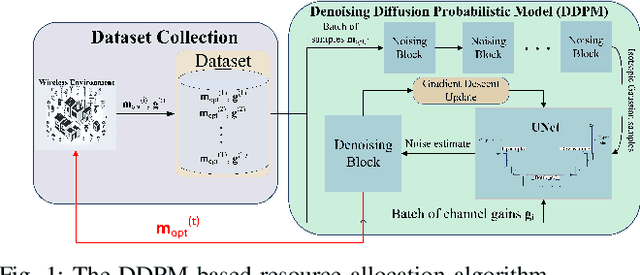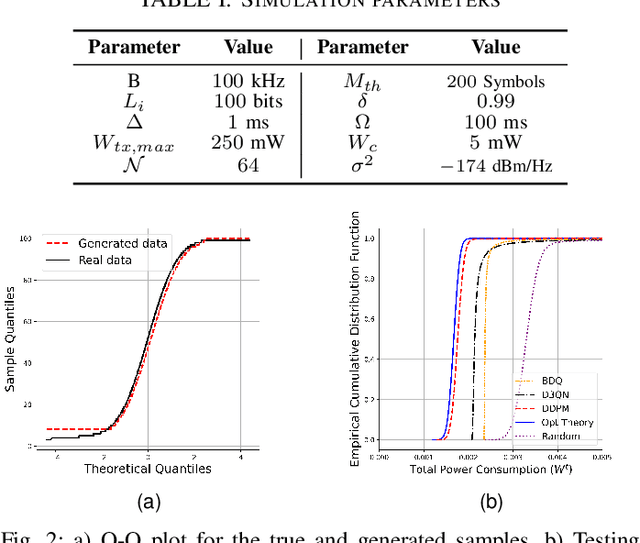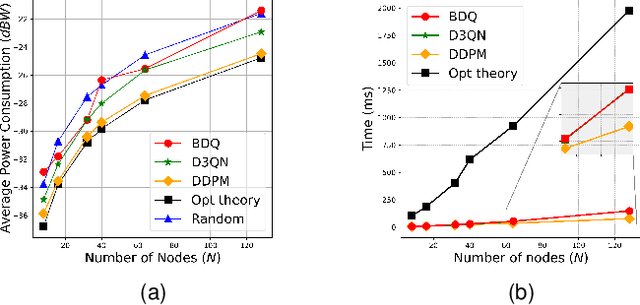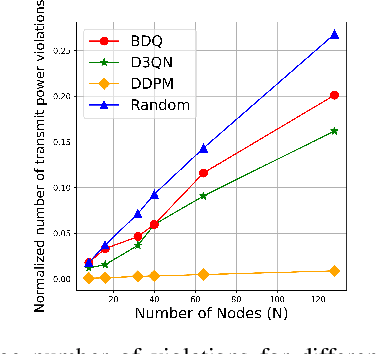Diffusion Model Based Resource Allocation Strategy in Ultra-Reliable Wireless Networked Control Systems
Paper and Code
Jul 22, 2024



Diffusion models are vastly used in generative AI, leveraging their capability to capture complex data distributions. However, their potential remains largely unexplored in the field of resource allocation in wireless networks. This paper introduces a novel diffusion model-based resource allocation strategy for Wireless Networked Control Systems (WNCSs) with the objective of minimizing total power consumption through the optimization of the sampling period in the control system, and blocklength and packet error probability in the finite blocklength regime of the communication system. The problem is first reduced to the optimization of blocklength only based on the derivation of the optimality conditions. Then, the optimization theory solution collects a dataset of channel gains and corresponding optimal blocklengths. Finally, the Denoising Diffusion Probabilistic Model (DDPM) uses this collected dataset to train the resource allocation algorithm that generates optimal blocklength values conditioned on the channel state information (CSI). Via extensive simulations, the proposed approach is shown to outperform previously proposed Deep Reinforcement Learning (DRL) based approaches with close to optimal performance regarding total power consumption. Moreover, an improvement of up to eighteen-fold in the reduction of critical constraint violations is observed, further underscoring the accuracy of the solution.
 Add to Chrome
Add to Chrome Add to Firefox
Add to Firefox Add to Edge
Add to Edge